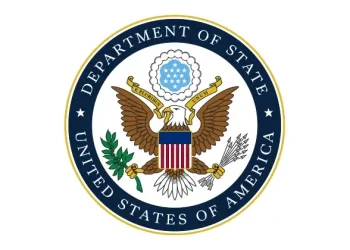The Department of Homeland Security (DHS) and U.S. Immigration and Customs Enforcement (ICE) have significantly expanded the 287(g) program, reaching over 1,000 agreements with state and local law enforcement agencies across 40 states.
This initiative aims to enhance national security by empowering local officers to assist in arresting serious criminal illegal aliens.
Under the leadership of Secretary Noem, the 287(g) program has seen a remarkable increase in partnerships, growing by 641% from 135 to 1,001 agreements.
This expansion reflects a strategic effort to bolster immigration enforcement by involving state and local law enforcement in federal operations.
The program targets dangerous individuals such as murderers, gang members, rapists, pedophiles, and terrorists.
Financial Incentives for Local Agencies
Starting October 1, 2025, DHS will offer financial incentives to participating agencies.
These include full reimbursement for the annual salary and benefits of trained 287(g) officers, including overtime.
Additionally, agencies can earn quarterly monetary performance awards based on their success in locating illegal aliens.
Program Benefits
- Full reimbursement for officer salaries and benefits.
- Overtime coverage up to 25% of annual salary.
- Quarterly performance awards ranging from $500 to $1,000 per officer.
This initiative is designed to encourage more local law enforcement agencies to join the program by easing budgetary constraints while enhancing their capacity to contribute effectively to national security efforts.
Local Community Concerns
The expansion of the 287(g) program may have mixed effects on community relations.
While it aims to improve public safety by removing dangerous criminals from communities, increased involvement of local law enforcement in immigration matters could affect trust between immigrant communities and police forces.
Balancing these dynamics will be crucial as the program continues to grow.
Additional Reading
A Final Reflection
The expansion of the DHS’s 287(g) program underlines a robust federal commitment to leveraging local resources for enhanced immigration enforcement.
While this strategy promises improved public safety through targeted removals of criminal aliens, it also necessitates careful management of community relations and jurisdictional dynamics between federal and local authorities.
Sources: U.S. Department of Homeland Security, U.S. Immigration and Customs Enforcement.
Prepared by Ivan Alexander Golden, Founder of THX News™, an independent news organization delivering timely insights from global official sources. Combines AI-analyzed research with human-edited accuracy and context.









